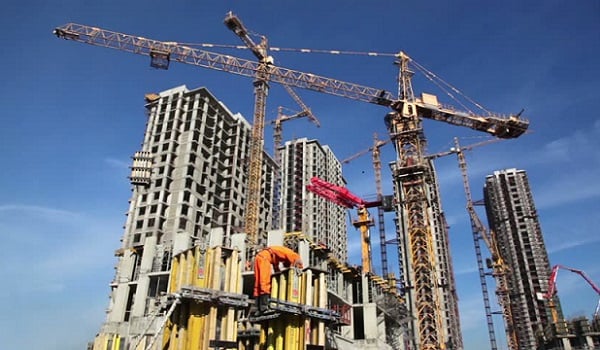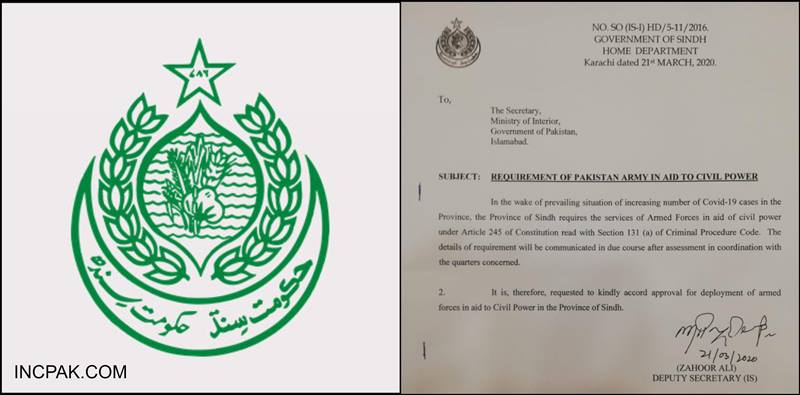KARACHI: The first-ever Island City project, worth $20 billion on Sindh islands Bundal and Buddo, is a violation of the Ramsar Convention said a World Wildlife Fund (WWF) letter addressed to Bahria Town CEO Malik Riaz Hussain.
The islands are a part of the Indus Delta and therefore the Convention on Wetlands of International Importance, especially as Waterfowl Habitat does not have provisions for such a mega project, which would ultimately result in the destruction of the habitat.
Reacting over the proposed project, WWF-Pakistan raises concerns and has invoked the Environmental Protection Act 1997 to demand an initial Environmental Assessment and then an Environmental Impact Assessment (EIA) to be conducted before any development takes place. These assessments will look at the broader environmental risks and suggest environmental management plans to mitigate the impacts. The EIA process also requires an investigation of possible alternative sites for the project, said that WWF’s letter.
Home to important mangrove forest cover, a part of the overall forest cover of the country, the area is home to 96 species of fish and additionally is a breeding and nursery ground for economically important species like shrimp, shellfish and crustaceans.
This diverse ecosystem is also a habitat for different species of marine turtles, three species of marine dolphin and 54 species of birds’, which are a part of Sindh’s coastal natural heritage, the letter stated.
A few weeks ago, the news that Pakistani real-estate tycoon Riaz signed an agreement with his American counterpart Thomas Kramer on a joint consortium of international investors to develop this project, made headlines. The deal with Kramer is the first level of this agreement.
The letter also stated quoting Geographic Information System (GIS) 2004 by WWF-Pakistan which confirms that 3,349 hectares of mangrove forests cover these islands, which after the construction of the project will be completely destroyed.
The letter also included fact sheets about the biodiversity of the islands. The species dependent on the eco-system include Humpback Dolphin, Bottle-nose Dolphin, Finless Porpoise; 47 species of water birds, including seven Raptor species, common birds like Cormorants, Pelicans, Herons, Egrets, Flamingo, Oystercatcher, Stilt, Plovers, Sanderlings, Sandpiper, Dunlin, Stint, Godwit, Curlew, Whimbrel, Sandpipers, Shanks, Gull, Terns and endangered species including Dalmatian Pelican were also attached in the fact sheet accompanying the letter. Also these islands are a natural habitat for reptiles like Marine Snakes (Annulated Sea Snake) and Beaked Sea Snake.
Following the agreement, public comments were invited on February 27, 2013 via an advertisement in mainstream national newspapers, stating that the ‘Island City’ business venture will bring thousands of new jobs for the local residents.
“It is ill-advised to advertise that a project will create new jobs when it will take away the livelihoods of thousands of poor fisherfolk, working on and around the islands. It will destroy the habitat of hundreds of species of birds, insects, fish and animals by building luxury houses for one species, adding to the environmental degradation of the area. This is counterproductive and in direct opposition to any logical modes of sustainable development, which our country needs desperately,” said Director General, WWF – Pakistan, Ali Hassan Habib.
He said that both the ill-chosen sites are a source of income for thousands of fisherfolk, who have relied on these islands for generations for their livelihood. Moreover, their catch adds a significant amount to the fishing export business in Karachi and supplies various species of fish and shellfish to local markets across the country.
Apart from economic benefits, decreasing the mangrove forest cover in the area will pose a threat to the safety of coastal populations in extreme weather conditions, he said, adding, “The coastline as well as the metropolitan city can be saved from very real dangers, as mangroves had a major role in saving lives and property in the 2004 tsunami in the Indian Ocean. Mangrove forests also filter sewerage water and purify the air. The air and water quality of Karachi will further deteriorate without the mangroves on Bundal and Buddoo Islands. This area has been categorized as a high priority ecosystem by IUCN.”
Besides sending the letter to Bahria Town Corporate Office, WWF-Pakistan has also sent copies of the letter to climate change and ports and shipping ministry secretaries in Islamabad; Pakistan Coast Guards director general; Maritime Security Agency director general; Pakistan Navy commander; Sindh Government Board of Revenue chairman; Port Qasim Authority (PQA) chairman; Karachi Port Trust chairman; Defence Housing Authority chairman; Federal Government Board of Revenue chairman; National Disaster Management Authority chairman; Sindh Government Forest and Wildlife Department secretary; PQA board member Mohammad A Rajpar; WWF-Pakistan President.









